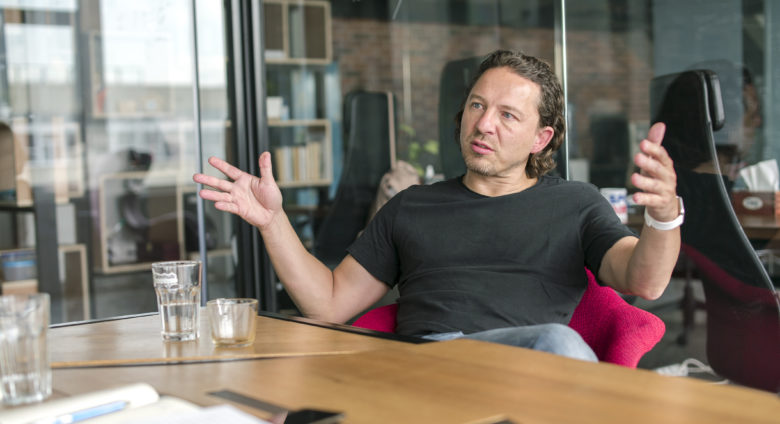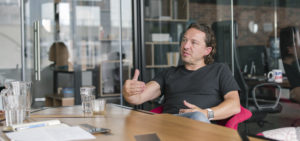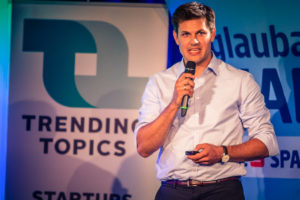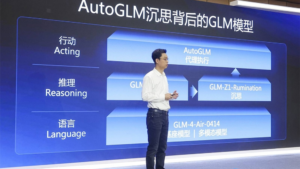Stephane Gantchev: We Don’t Need B Or C Series VCs In Eastern Europe. There Are Not Enough Late Seed And Pre-Series A Funds

After at least a year of total silence from one of the prominent Bulgarian and regional active funds, and months of trying to get them on record, here we are.
Stephane Gantchev is one of the well-known faces of the Bulgarian VC industry, not only locally. Gantchev started his career in France in Atos Origin. He went on to become Head of Innovations at the French telecom Orange for the Mobile branch of the company and has been an entrepreneur in the mobile space for quite some time. Up until he joined LAUNCHub as one of the founding partners.
Launchub Ventures was one of the first two investment funds in Bulgaria that played a major role in catalyzing the local startup ecosystem. In 2012, Launchub got the mandate to deploy €9M as pre-seed and seed funding. In the first two years, the fund was focused rather on acceleration, then the strategy changed slightly gradually reaching the pre-Series A stage. The VC started to look for startups and deals outside Bulgaria, including the Bulgarian diaspora, and to co-invest with other European VCs. While the focus of the first funds was primarily on Bulgaria and partly on SEE, today LAUNCHhub looks also at CEE and the Baltics providing tickets of up to €1-1.5M.
In late 2016, LAUNCHub closed its second fund of €19M, which is now almost invested. After five exits, LAUNCHub is now raising a next fund aimed at filling another regional VC gap. What is it all about and do LAUNCHub’s partners know something about the ecosystem that others don’t?
Trending Topics: We’ve interviewed most of the funds in Bulgaria, and started talking to VCs in the region already, and so far, you were the hardest to catch. Why has LAUNCHub been so silent recently?
Stephane Gantchev: We’ve been busy. On the one hand, we’ve been fundraising for our next fund – LAUNCHub Ventures 2. But we’ve been also intensively working with the current portfolio companies. For instance, this summer, we successfully exited Cloudpipes – our biggest exit so far, indeed. We also worked hard to help our top-performing companies OfficeRnD, Taylor & Heart and Gtmhub in attracting Series A investors. And there are more exciting news coming in the next months.
What is the current state of LАUNCHub Ventures? How are the companies performing, are there any exits?
Let’s start by drawing a clear line between the two funds we had until now. The first one – LAUNCHub was our ‘test’’ or our ‘beta’. With a capacity of €9M, we had an investment period between 2012 аnd 2015. This fund by design was investing in a very early – pre-seed stage. Then in 2016, we raised the first real seed-stage fund, with a size of €20M rebranded to LAUNCHub Ventures. Last year we closed the investment period for that fund with 16 deals in total.
Speaking about the performance of our portfolio, the picture is rather positive. We have several companies that show great month on month growth. OfficeRnD and Taylor & Heart have recently raised $3M+ rounds. Gtmhub just raised $9M after growing 400% ARR growth last year. There will be more news soon, a couple of other portfolio companies are closing their A rounds as we speak.
How many exits do you have with the first two funds, and how many companies didn’t make it? What’s the current return?
The strategy with the first ‘beta’ fund was quite different, it was aligned to EIF’s initial design – small tickets, many investments. Back then we closed deals with 61 companies. With such a number of investments, the mortality rate is logically high. Half of the companies are however still operating today, roughly said. These statistics have nothing to do with LAUNCHub Ventures 1 fund where 15 out of our 16 investees are performing great.
We have so far three more significant exits – as mentioned Cloudpipes, BGMenu, and Connecto.ai, which is a smaller one. The BGMenu exit was the first one sizable enough for our market and for a company that is only a regional player. The exit happened quite fast and the return of investment also came fast, which was great for our LPs. The Cloudpipes exit, although not disclosable, was of significant size.
We’ve returned over 50% of the first ‘beta’ fund. Having in mind that this fund was not designed as a commercial VC, but rather as an “ecosystem development” fund, I’d say this is a good performance. We’re quite satisfied with the return so far. It’s too early to talk about returns of LAUNCHub Ventures 1 because the investment period was between late 2016 and 2018. The KPIs we can track there are the follow-up next round investments done with other VC funds. This was the focus of the last months as showing traction of the portfolio companies is crucial also for further fundraising.
But wasn’t Cloudpipes part of the second fund though?
It was, but it was also part of the portfolio of our first ‘beta’ fund. Our second fund was designed to top up the best-performing companies from the beta fund. Both we, and EIF realized that a company cannot go far with €200k. In the beginning, we were trying to push and promote companies from the beta portfolio in front of other investors, but we realized they were just not ready for follow up rounds with bigger VCs. If beta was a pre-seed stage fund, LAUNCHub Ventures shifted up in seed-stage investments filling an investment gap in our region. The average cheque size with it was €850k.
So, what about the new fund that you are raising?
We are raising a new fund with a size between €60M and €80M. The investment period will be five years, although I think we’ll deploy the money faster. Our target is 20-25 companies, and the tickets will vary between €500k and €2M.
We are already an established early-stage regional player, the fund’s strategy for LAUNCHub Ventures 2 will be to invest in the Southeastern Europe region in seed and pre-Series A stages. We’ll also keep more reserves for the best portfolio performers for bridging, but also to participate in a later stage, Series B and C rounds of those portfolio champions.
The geographies we are looking at are Southeastern Europe – Bulgaria, Romania, Greece, Serbia, Croatia, Slovenia, but also the diaspora of that region in more established startup hubs, like London, the Valley, etc. The extended region where we’ll look occasionally as well is CEE, including Ukraine.

Who are you fundraising from and when are you expecting to close the fund?
The anchor investor is EIF, yet this time with less than 50% participation. We are talking to most of our previous LPs, and private investors from Bulgaria and the region, mainly in the tech sector.
The first closing of the next fund will be probably some time next summer. This time we won’t have any ‘substance’ restrictions as we had with our previous fund. In other words, the fund will be fully commercial.
What’s the investment thesis with the next fund?
More of the same. (laughs) Seriously, we’ve managed to validate the thesis that investing in Southeastern European tech founders as well as founders from the regional diaspora. Founders from the diaspora are an important component of the thesis. Cloudpipes, that we exited, is one such example. Boris, the founder was based in London and had a dev office in Bulgaria. Another example in our portfolio company is Charlie Finance, which has two Bulgarian co-founders based in the Valley. Our last investment with LAUNCHub Ventures 1 is Cleanshelf – a Slovenian founder on the West Coast. Not least, we’ve extended our scope with more cities where we are looking for such founders – if we were focused on London and the West Coast previously, now we look at Paris, Berlin, Amsterdam, and also the US East Coast.
You mentioned earlier that companies were not ready for bigger investors. What does this mean exactly?
In the early days of the development of our ecosystem startups were not mature enough. Therefore, often they had to look for additional bridge funding, before being ready to initiate fundraising for a significant next round of financing. The companies that are part of the portfolio of LAUNCHub Ventures 1, were ready to start preparing for Series A. We saw that as investors we have a crucial role there – not only securing the financing, but also helping in the preparation including the vision, the goals, the KPIs, the team, the achievements, but also preparing the ground – discussions with potential UK and US investors. We work a lot with the companies on identifying the right investors as it turned out that in general many startup founders don’t pay enough attention to this. Quite often founders start sending out decks to everyone, instead of targeting VCs that invest in their type of companies – specific stage, business vertical, and that have available capital right now. We’ve packaged all that in a specific program for our portfolio companies – something like an internal academy, we called it the Series A academy.
What were the biggest misconceptions of the founders?
It’s hard to generalize. Each company has its own challenges. One of the most important indicators for a VC is aggressive growth in terms of sales. Gtmhub, for instance, was growing 15% month over month for over a year. In their case, they started talking to investors a bit earlier in terms of MRR (monthly recurring revenue) readiness.
Years ago, a company could raise Series A with a lower MRR, today serious VCs are expecting higher values to start negotiations. Nevertheless, it’s important to engage earlier with potential next round investors.
How long does it take currently for an Eastern European company to raise Series A?
In any case, the cycle is shorter today than it used to be. The period is shortening because the companies in our region manage to attract attention earlier. One example is the Romanian company FintechOS, which is the first investment with our new fund – LAUNCHub Ventures 2. They raised a seed round from us at the beginning of this year. They closed the A round in December. In other words, it took them less than a year between the two rounds. Of course, this case could not be a benchmark. We usually advise companies to raise a seed that’s enough for the next 18 months, whereas the last 6 months are dedicated to raising the next round.
What are the trends in the VC industry in the region?
Currently, there are not enough late seed and pre-Series A funds. There are many newborn funds, but, and as we all know, it takes some time to become a successful VC. Yes, there’s a lot of early seed capital in Romania and Greece but restricted within the countries. We need to start thinking more regionally now, that’s where we are positioning LAUNCHub Ventures 2.
How do you think the ecosystem and the VC industry in Bulgaria have developed in the past five-six years? What are and were the upsides and the downsides?
I’m impressed with what has happened in the course of these years. We today experience a much more mature ecosystem, better founders, and we hear less insane ideas. Back in the early days, many naive projects were funded, we all know this.
Speaking of the investors’ landscape, we have to say that there is this natural learning curve and all of us have been learning ever since this VC industry started evolving. I’d say we’ve matured. Being an investor is connected to having some qualities regarding people, to be able to assess the people. In the early stage phase, it’s all about the founder and the team. I think the most important lesson we as investors learned is exactly to sense whether the people are willing to do something big. I do meet many talented founders, but not all of them have the grid to take their business to a venturable level.
Looking back, what are the mistakes you’ve made and could have been avoided?
We were naive and thought our companies would grow and will be able to raise the next rounds much faster. Therefore, in the beginning, we were introducing them to many partners very often, but it was a mixed blessing. What we learned is that the companies have to go through certain phases, do their checklists and then be ready for next rounds and bigger VCs. In other words, we learned that as investors we need to step back a bit and go back to the ‘checklists’ and help companies prepare to meet all those criteria, grow and fundraise abroad.
Being one of the pioneers of VC in the SEE region, what’s your forecast for the next 2-3 years when it comes to the startup ecosystem and VC industry development?
I’m very optimistic. This is part of our fundraising thesis that we pitch to investors for our next fund. We give examples with the companies that have appeared in the region recently – there are at least ten companies that could be qualified as unicorns, there’s tremendous tech talent here. We see founders being more and more confident when starting companies, and thankfully the ecosystem is mature enough, so companies make fewer mistakes.
Is something missing in the VC industry?
What is missing here is a big brand, a local chapter of a top accelerator like Techstars or Startup Bootcamp for instance, that would feed our pipelines too, but also have the potential to attract talent and companies from abroad. I don’t believe we need bigger – B or C Series – funds.
At the same time, we, the investors are still maturing. We need to see some bigger successes and significant exits.




























